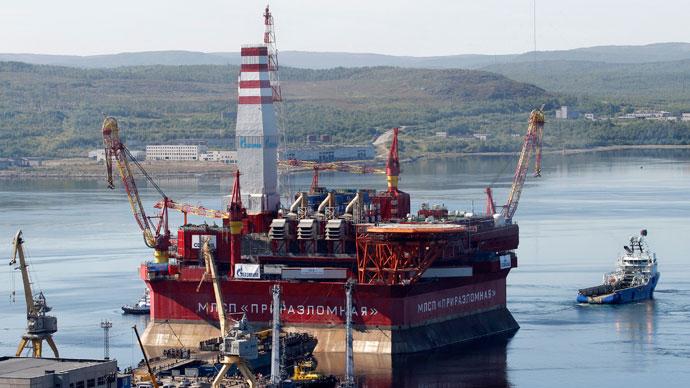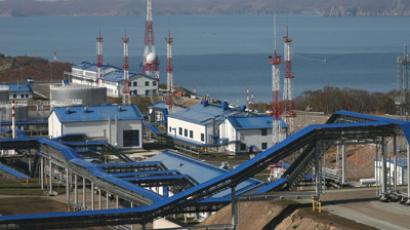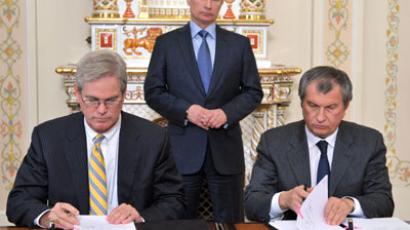‘Russian Arctic shelf to be kept idle for Gazprom and Rosneft until 2020’

The Russian government has announced plans to partially suspend oil and gas production in Russia’s Arctic shelf. As almost 80% of the Arctic sections are potentially to be developed by Rosneft and Gazprom, the rest will be kept in status quo until 2020.
The newly published “Strategy of the Russian Arctic Zone
Development and National Security until 2020” says the reserve fund
deposits, around 20% of the Russia’s Arctic shelf, will be unfrozen
in 2020 to make for dwindling crude and gas production in
Russia.
Experts believe the move is mainly aimed at limiting private gas
and oil companies’ access to the Russian Arctic shelf and
maintaining the existing status quo in the area with the two state
majors, Gazprom and Rosneft.
“The initiative to keep idle part of the shelf deposits means only state companies will have the right to develop them in the future. They already control the most attractive parts of the shelf. Developing them requires lots of resources, which is why Gazprom and Rosneft don’t need any more deposits now,” says Investcafe analyst Yulia Voitovich.
The main problem about granting licenses to state companies was
that they possibly would not be able to complete exploration works
in stated time and volume, Voitovich points out.
“Rosneft, for example, had to increase its projected spending
on shelf exploration by up to almost $40 billion in the last decade
to meet the requirements,” she said.
In February Rosneft, without a tender, got hold of 12 offshore
licenses in the Arctic, thus making the overall number of licenses
26. Gazprom has 7 licenses in the region, and has applied for 17
more. Thus, the two companies will concentrate up to 80% of the
shelf resources.
Recently Rosneft secured deals with ExxonMobil and several
Chinese companies for future oil and LNG projects in the Arctic,
while Gazprom chief Aleksey Miller has pledged on Wednesday to
start extracting oil in Arctic shelf in 2013.
“Rosneft is already the biggest oil producer in Russia and it also produces an awful lot of gas and it has the backing of the Russian government, and we shouldn’t forget they are buying TNK-BP after which they will become by far the world’s largest oil producer. Offshore Russia has vast hydrocarbon reserves, so China and Japan can look like a very attractive market for this large production,” Stuart Elliott, senior managing editor of Europe and Africa Oil section of Platts industry group, told RT.
Foreign companies, however, will be not allowed to own licenses
for Russian shelf development; they will be able to take part only
as partners, Russian vice premier Arkady Dvorkovich said in
January. At the moment the right to work in Russia’s continental
shelf belongs only to companies with more than 50% governmental
ownership and not less than 5 years of work in the field.
The Arctic territory’s development won’t be reduced, however. On the contrary, under the 2020 strategy a number of federal projects are expected to be launched to help prepare the area for future development of not only gas and oil fields but also rare elements.
“Different foreign companies are highly likely to take part
in the work,” gazeta.ru quotes RMG Securities analyst Mikhail
Loshchinov as saying. “The Russian firms cannot boast all the
required technology and experience.”














